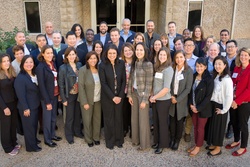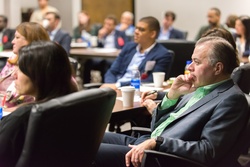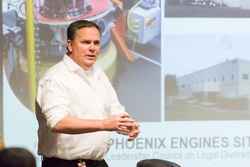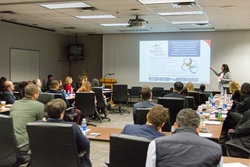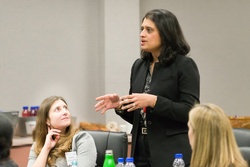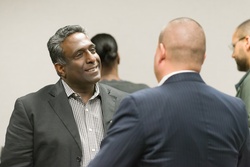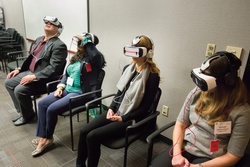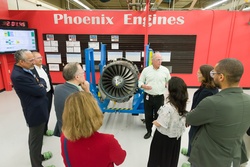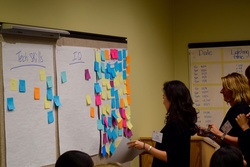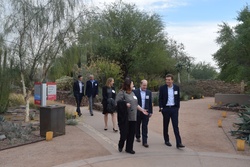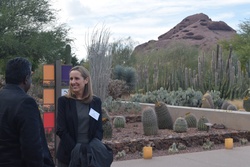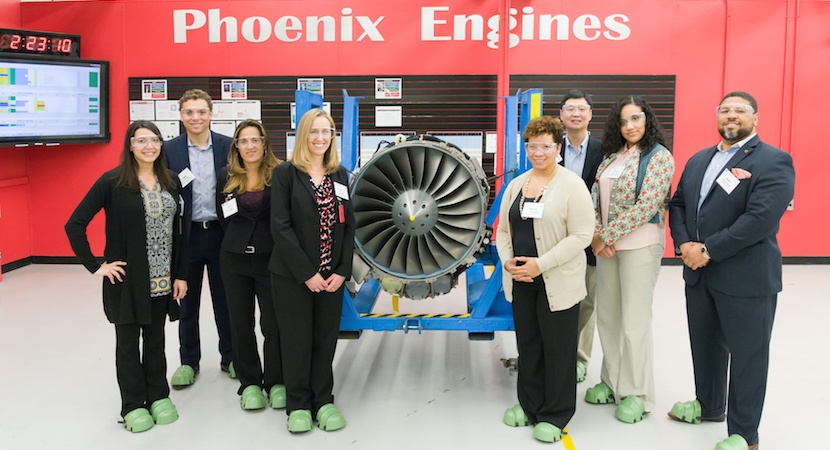
With eyes and feet protected, Fellows tour Honeywell's engine manufacturing and test facility. Photo by George Tenney.
Innovation is critical for all businesses in today’s global economy, but at Honeywell, it’s about more than just the bottom line.
When Flight 1549 lost both engines at 3,000 feet, it was a Honeywell auxiliary power unit that kicked in and allowed the flight crew to make a safe landing on the Hudson River. That engine helped make the “miracle on the Hudson” possible, and even appears in the 2016 film, Sully, based on the actual event – as Fellows saw for themselves at a Learning Experience at Honeywell Aerospace.
Most people know the Honeywell logo from their thermostats, but Honeywell designs, develops, and manufactures products in many industries, including oil and gas, chemical, manufacturing, automotive, aerospace, and defense. The aerospace division alone makes up for almost half of Honeywell’s $38.6 billion in sales. In fact, Honeywell builds integrated technologies for almost every type of aircraft, Aerospace General Counsel Harriet Mountcastle-Walsh told Fellows in her welcome remarks.
So how does Honeywell ensure that they are producing the best, most innovative technology? According to Bob Smith, President - Mechanical Systems and Components, diversity plays a big role.
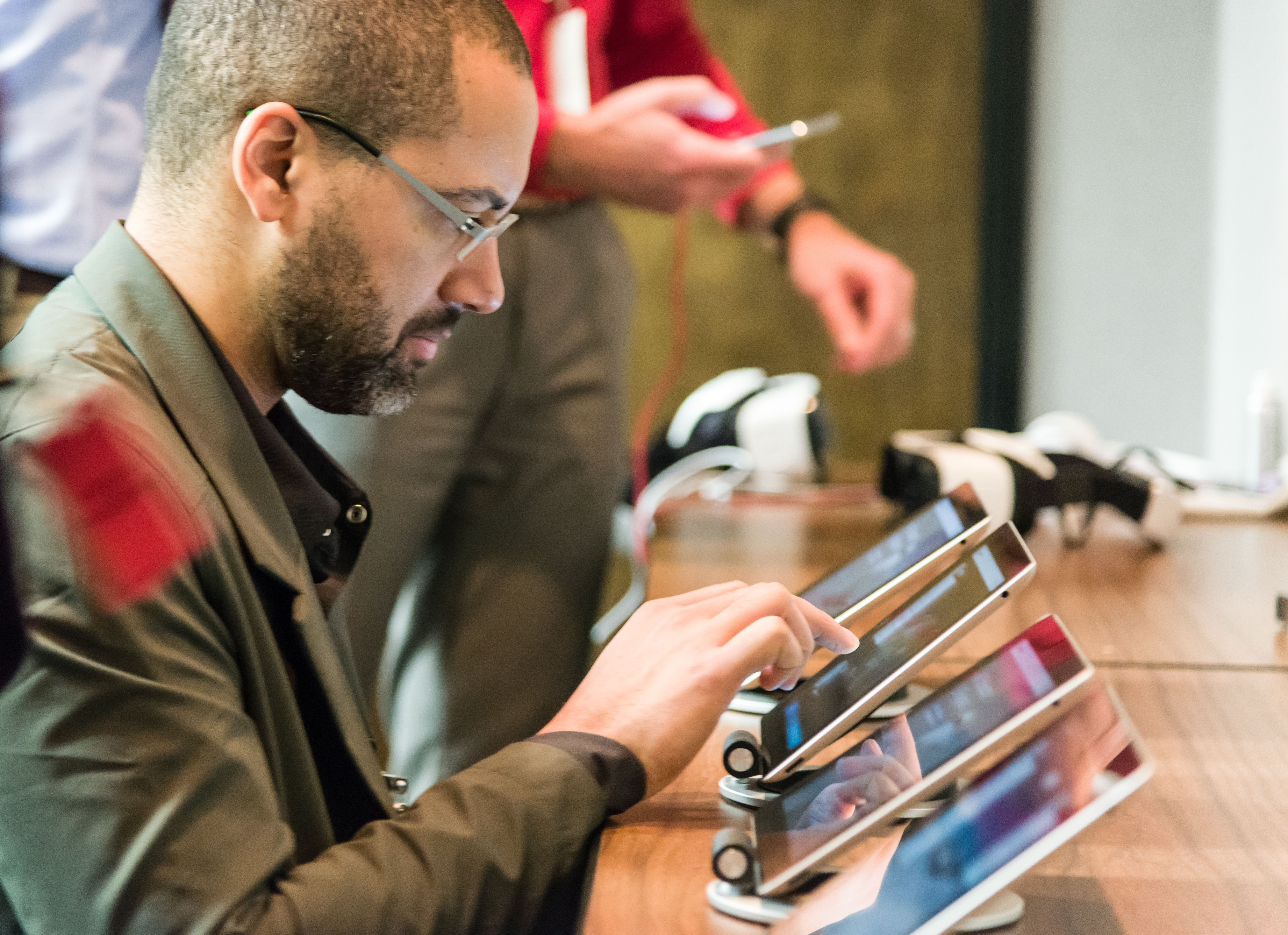
2016 Fellow Jason Barnwell tests out
a Honeywell product.
“If you are a technologically-differentiating company, you have to have the best people or you will fail,” Smith told Fellows during a session on Honeywell's diversity and inclusion efforts. “And if you don’t look for diversity, you won’t have the best talent.”
Like the legal profession and many STEM-related industries, Honeywell faces challenges in improving the diversity of its ranks.
“We all tend to hire ourselves,” Smith said. “We need to recognize that bias and respond to it... Great talent is the strategic imperative for Engineering and Technology.”
Honeywell has made concerted efforts to recruit more women and minorities; in 2015, Honeywell hired 68 women at a Society of Women Engineers conference, Smith said. Honeywell has also designed initiatives to promote inclusion and retention, like the Women in Honeywell Engineering Network (WHEN) and the Aerospace Women’s Council (AWC).
“Once we all look at the data, we realize it’s not us versus them – we’re all in it together.”
– Dawn Valdivia, 2013 Fellow
“We’re not prescriptive; we record things at a national level, but…it has to be grassroots to get engagement,” explained Maura Ballantyne, Vice President of Customer Service, who co-leads the AWC. “If you go back five years, nobody talked about diversity. Now, AWC has gotten it more visibility.”
“Having men there is such a key thing,” added Dawn Valdivia, 2013 Fellow and Assistant General Counsel of Labor and Employment at Honeywell. “Once we all look at the data, we realize it’s not us versus them – we’re all in it together.”
It also helps to have diverse leaders in key roles – like Mountcastle-Walsh. Despite having handled only one (albeit lengthy) aeronautics case, she persevered through 21 interviews when first hired at Honeywell, and has now been general counsel for 11 years. For Fellows who hope to follow in her footsteps, Mountcastle-Walsh had this advice: “Always say yes! Take some risks. And network, network, network.”
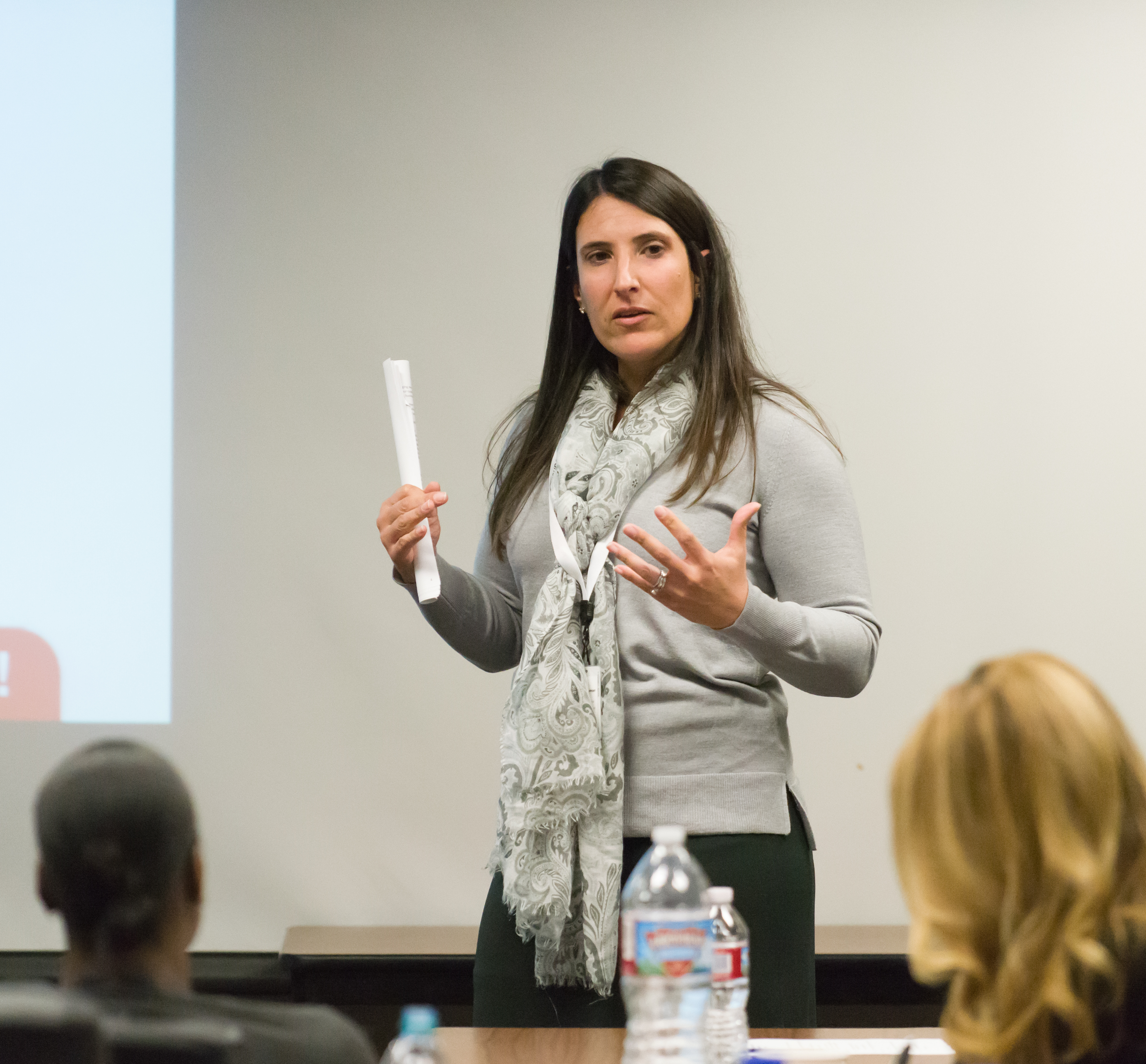
Maura Ballantyne tells Fellows about
the Aerospace Women's Council.
A panel of Honeywell Fellows also shared their personal experiences with diversity and some of the ways in which Honeywell promotes inclusion among its legal team. For example, Jacquie Katzel, 2011 Fellow and Assistant General Counsel, shared how the Honeywell General Counsel (LCLD Member Kate Adams) meets with Fellows and their managers to discuss the impact of the program and their plans for the future.
At the end of the day, Fellows also had the opportunity to test out Honeywell products, including a virtual reality device, and took a tour of the engine manufacturing and test facility.
Prior to the Learning Experience, Osborn Maledon, P.A. invited Fellows to a workshop on emotional intelligence, led by leadership development coach Bobi Seredich. Fellows also explored the Phoenix Desert Botanical Gardens, and were treated to a dinner and drinks in the garden with diverse lawyers from both Honeywell and Osborne Maledon.
LCLD would like to thank Harriet Mountcastle-Walsh, Bob Smith, Maura Ballantyne, Mike Bevans, Adam O’Neill, Jacquie Katzel, Maja Berlin, Dawn Valdivia, Sharad Desai, Therese LeBlanc, and Yaneris Rosa at Honeywell. LCLD would also like to thank Scott Rodgers, Elizabeth Chatham, and Davinia Perrin at Osborn Maledon for hosting the event and reception preceding the Learning Experience.
Photo Gallery
Photos by George Tenney and Caitlin Puffenberger

